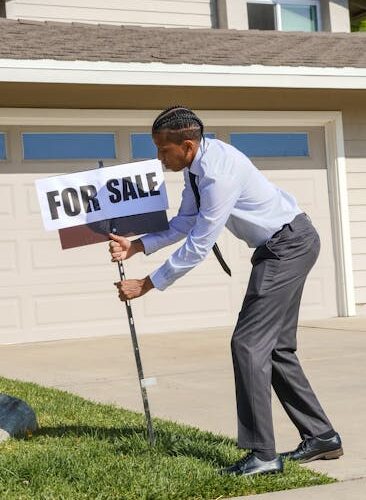How to Choose the Right Listing Price for Your Home
January 17, 2025

How to Choose the Right Listing Price for Your Home
Selling your home is a significant decision that involves several crucial steps, one of the most important being setting the right listing price. The right price can affect how quickly your home sells and how much profit you make from the sale. Pricing your home too high might scare off potential buyers, while pricing it too low might leave money on the table. This guide will walk you through the steps to determine the perfect listing price for your home, ensuring you achieve the best possible outcome.
Understanding Market Dynamics
Before setting a price, it’s essential to understand the dynamics of the real estate market. Real estate is heavily influenced by supply and demand, interest rates, and economic conditions. According to National Association of Realtors, home prices have seen an average annual increase of 5-6% over the past two decades, but this can fluctuate based on market conditions.
Analyzing Local Market Trends
Local market trends provide insights into how much homes are selling for in your area. Utilize tools like Zillow or Realtor.com to check recent sales in your neighborhood. Look for homes similar to yours in size, condition, and location. This will give you a baseline for setting your price. As per a report from Zillow, homes priced accurately based on local trends are 20% more likely to sell within the first 30 days.
Seasonal Market Variations
Consider the time of year you are selling. The real estate market typically heats up in the spring and summer, leading to higher home prices, while winter months might see a slowdown. According to U.S. News Real Estate, homes listed in spring sell an average of 5-10% higher than those listed in winter.
Assessing Your Home’s Unique Features
Every home has unique features that can add value. Understanding these can help in setting the right price. Features like a renovated kitchen, a finished basement, or a large backyard can significantly increase your home’s value.
Highlighting Renovations and Upgrades
If you’ve made significant renovations or upgrades to your home, these should be factored into your pricing strategy. According to Remodeling Magazine’s Cost vs. Value Report, a minor kitchen remodel can yield a return of investment (ROI) of up to 81%. Ensure these upgrades are highlighted in your listing to justify a higher price.
Evaluating Curb Appeal
Curb appeal is the first impression potential buyers will have of your home. Simple improvements like landscaping, painting, and cleaning can add value. A study from the National Association of Realtors suggests that good curb appeal can add 7% to 14% to a home’s value.
Consulting with Real Estate Professionals
Real estate agents have the expertise and access to data that can help you set the right price. They can conduct a Comparative Market Analysis (CMA) to evaluate what similar homes in your area have sold for recently.
Hiring a Professional Appraiser
If you want an unbiased opinion, consider hiring a professional appraiser. An appraisal will give you an objective and comprehensive evaluation of your home’s worth. Appraisers take into account factors such as location, condition, and comparable sales. As per the Appraisal Institute, an appraisal can provide peace of mind that your home is priced appropriately.
Leveraging Real Estate Agent Expertise
An experienced real estate agent can provide insights that you might not consider. They understand market nuances and can advise you on a pricing strategy that will attract buyers without underselling your property. According to NAR, homes listed with agents sell for 6% more on average than those listed by owners.
Setting a Competitive Price
Once you’ve gathered all the necessary information, it’s time to set a competitive price. Competitive pricing attracts more buyers and can even lead to bidding wars, increasing your selling price.
Understanding Psychological Pricing
Psychological pricing is a strategy where prices are set just below a round number, such as $299,000 instead of $300,000. This can make your home appear more affordable and attract more buyers. A study by the Journal of Consumer Research found that homes priced with psychological pricing strategies tend to sell faster.
Considering Online Search Filters
Buyers often use online filters to search for homes within specific price ranges. Pricing your home just below a round number can increase its visibility in searches. For example, a home priced at $499,000 will show up in searches for homes under $500,000.
Conclusion
Choosing the right listing price for your home is crucial to ensuring a successful sale. By understanding market dynamics, assessing your home’s unique features, consulting with real estate professionals, and setting a competitive price, you can maximize your chances of selling your home quickly and at a desirable price. Remember to continually evaluate market conditions and be prepared to adjust your pricing strategy if necessary. With these strategies in place, you’re well on your way to achieving a successful home sale.
For further guidance, consider reaching out to a local real estate agent who can provide personalized advice based on your specific market. Happy selling!